Introduction to Organic Food
Organic food refers to food products that are produced using organic farming methods. Organic farming is a system of agriculture that relies on ecological processes, biodiversity, and natural inputs to produce crops and livestock. Organic farming typically avoids the use of synthetic pesticides, herbicides, fertilizers, and genetically modified organisms (GMOs).
Origin of Organic Food
The organic food movement began in the early 20th century in response to concerns about industrial agriculture. It gained momentum in the 1960s and 1970s, leading to the development of organic farming standards and certification programs. Today, organic food is popular due to its focus on sustainability and health.
Health Benefits of Organic Rice
Organic rice offers several health benefits compared to conventionally grown rice. Here are some key advantages:
- No Chemical Residues: Organic rice is grown without synthetic pesticides, herbicides, or fertilizers, reducing the risk of chemical residues in the final product.
- Nutrient-Rich: Organic farming practices often result in more nutrient-rich soil, which can lead to rice with higher levels of nutrients such as vitamins, minerals, and antioxidants.
- No GMOs: Organic rice is non-GMO, meaning it has not been genetically modified, which some people prefer due to potential health and environmental concerns associated with GMOs.
- Environmental Benefits: Organic farming practices are typically more environmentally friendly, promoting biodiversity, conserving water, and reducing pollution.
- Better for Soil Health: Organic farming methods focus on maintaining soil health, which can lead to improved soil structure, fertility, and resilience to erosion.
- Lower in Heavy Metals: Some studies suggest that organic rice may contain lower levels of heavy metals like arsenic, which can be present in rice due to environmental factors.
Also Try: VOWS FOR VERMICELLI: TREAT FOR THE PALATE
Overall, choosing organic rice can be a healthier option for you and the environment, although it may be more expensive than conventionally grown rice.
Uses of Organic Rice In Kitchen
Organic rice can be used in various ways in the kitchen, just like conventional rice. Here are some common uses:
- Cooking: Organic rice can be cooked and used as a side dish, base for stir-fries, salads, or main courses.
- Rice Dishes: Use organic rice to make classic dishes like fried rice, rice pilaf, rice pudding, or risotto.
- Soup and Stews: Add cooked organic rice to soups, stews, or chilli for added texture and substance.
- Sushi: Use organic rice to make sushi rice for sushi rolls, nigiri, or sashimi bowls.
- Rice Flour: Grind organic rice into flour to use in baking or as a thickening agent in sauces and soups.
- Rice Milk: Blend cooked organic rice with water to make homemade rice milk, a dairy-free alternative to cow’s milk.
- Rice Vinegar: Ferment organic rice to make rice vinegar, a staple in Asian cooking for dressings, marinades, and sauces.
Organic rice can be substituted for conventional rice in any recipe, offering a healthier and environmentally friendly option.
Recipes using Organic Rice
RECIPE 1] Vegetable Pakoras
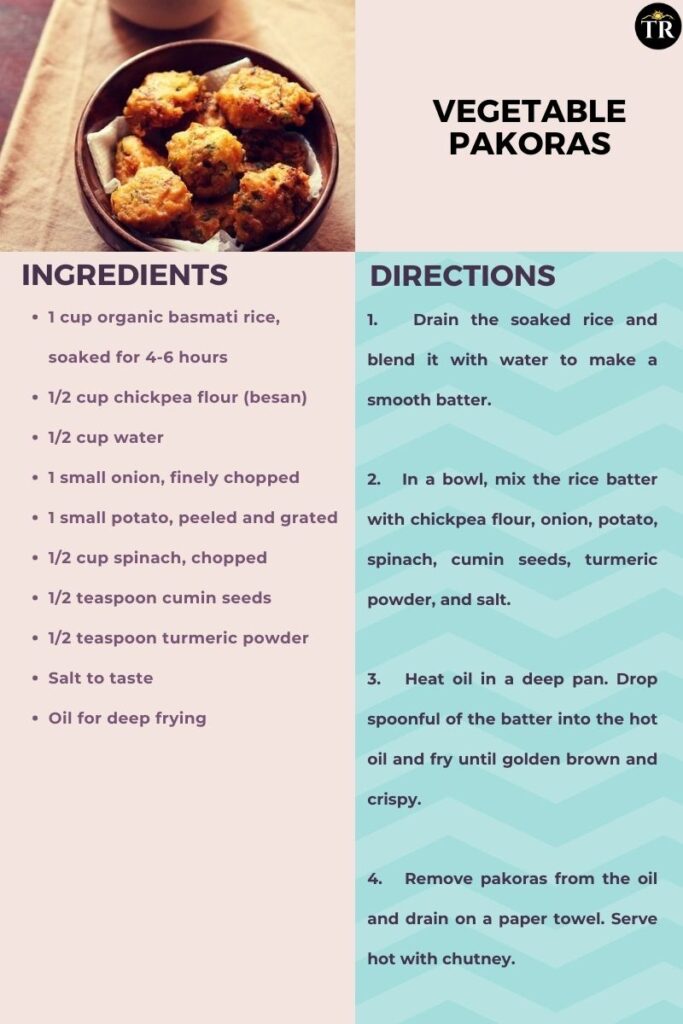
RECIPE 2] Vegetable Biryani
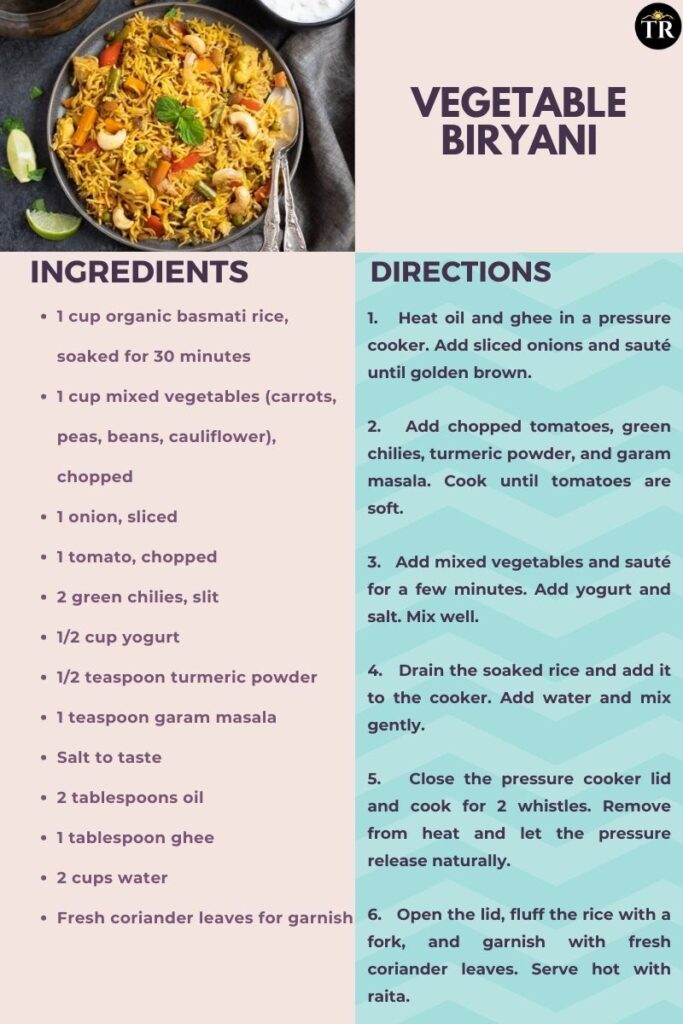
RECIPE 3] Dal Khichdi
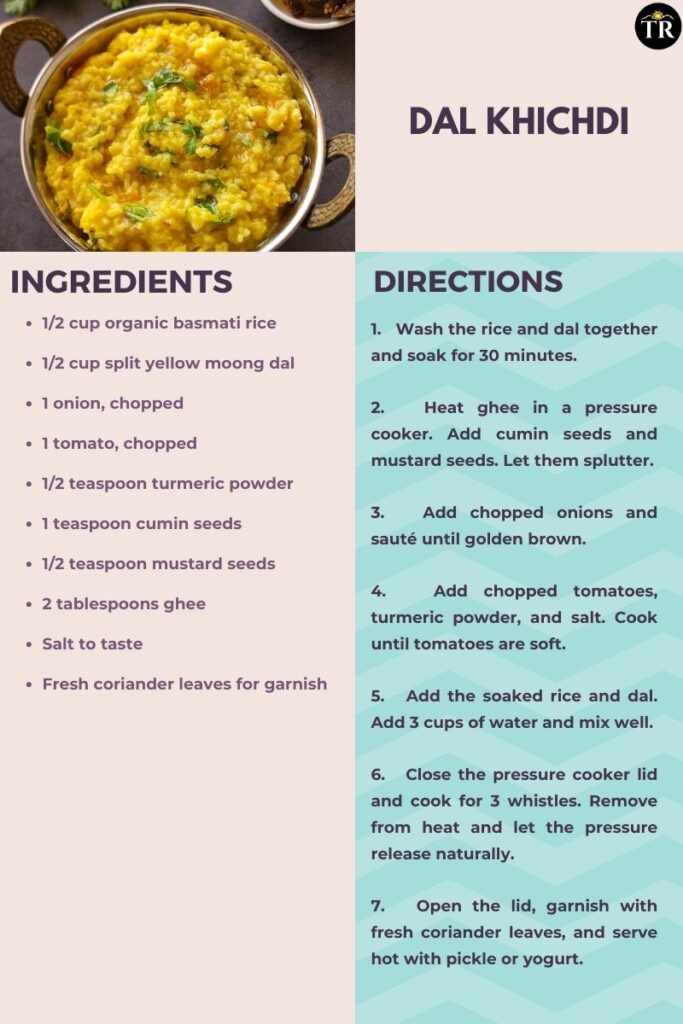
RECIPE 4] Lemon Rice
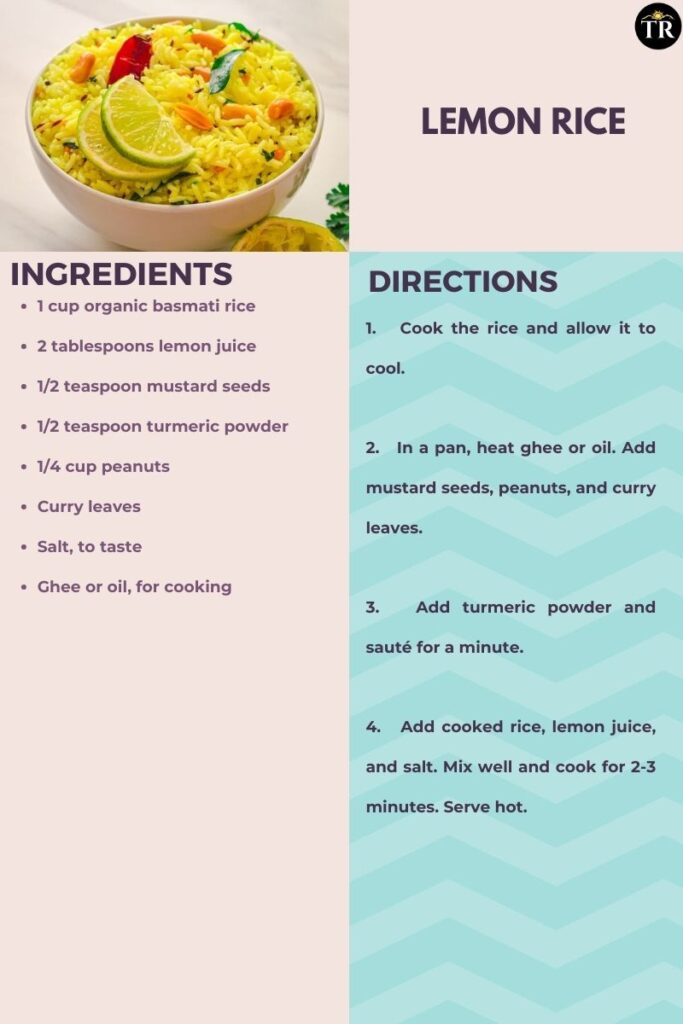
RECIPE 5] Rice Kheer
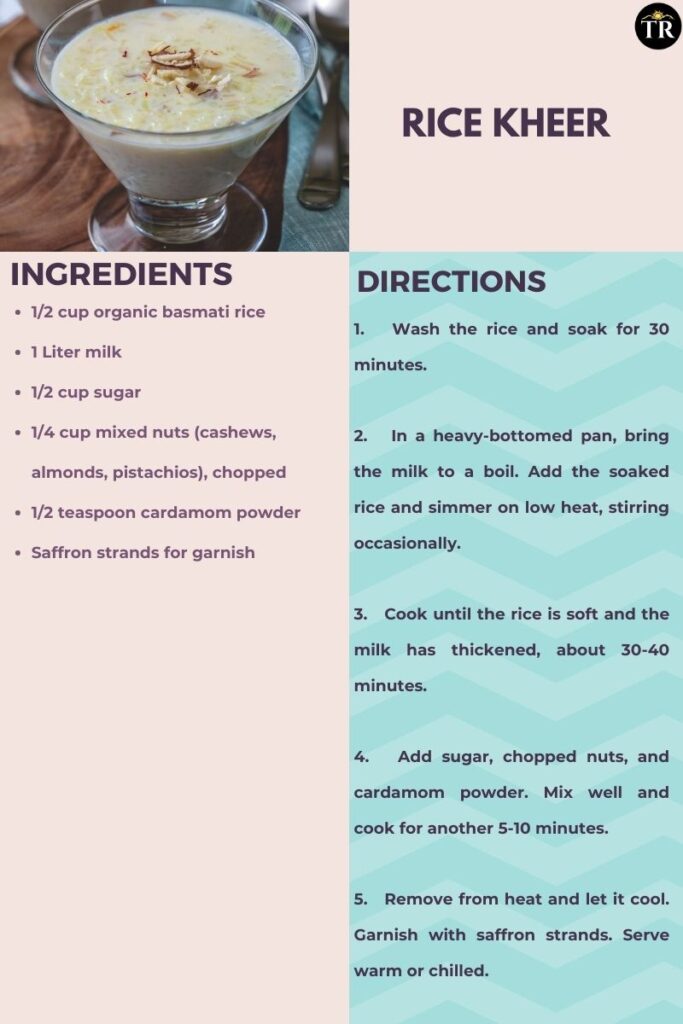
RECIPE 6] Rice Ladoo
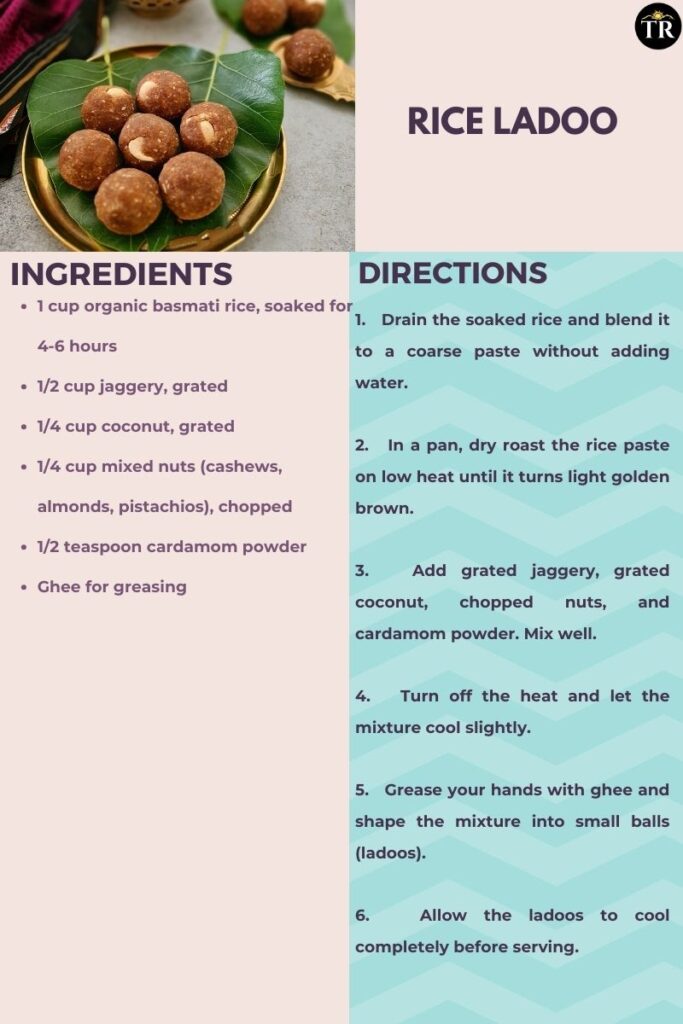
Conclusion
Organic rice is a versatile ingredient that can be used in a variety of Indian recipes, from starters to main courses and desserts. Choosing organic rice offers health benefits such as avoiding chemical residues, potentially higher nutrient content, and supporting environmentally friendly farming practices. Whether you’re making vegetable pakoras, vegetable biryani, dal khichdi, vegetable pulao, rice kheer, or rice ladoo, organic rice can elevate the taste and nutritional value of your dishes. Incorporating organic rice into your cooking not only enhances the flavour and texture of your meals but also contributes to a more sustainable and healthier lifestyle.
Disclaimer: The views expressed in this article are of the author solely. TheRise.co.in neither endorses nor is responsible for them. Reproducing this content without permission is prohibited.
About the author
Dr. Kaviraj Khialani, celebrity master chef is a Mumbai based food and hospitality consultant. He is specialised in over 33 plus international cuisines & is a two times national award winner for his excellence in his field of expertise. Chef Kaviraj has worked with some of the reputed hotel chains & airline companies in India & Overseas. He is a renowned academician, food designer & author- writer on food and culinary features, besides having been featured on Colors Television & Star plus he loves trying global fusion cooking promoting Indian food on an international platter for the diaspora.











Pingback: LACTOSE FREE DELICACIES - TheRise.co.in